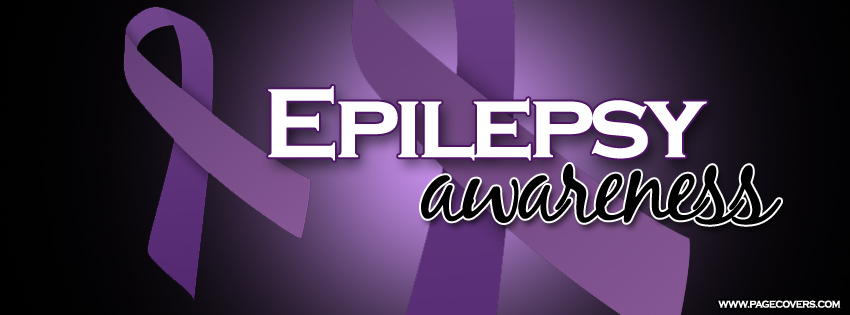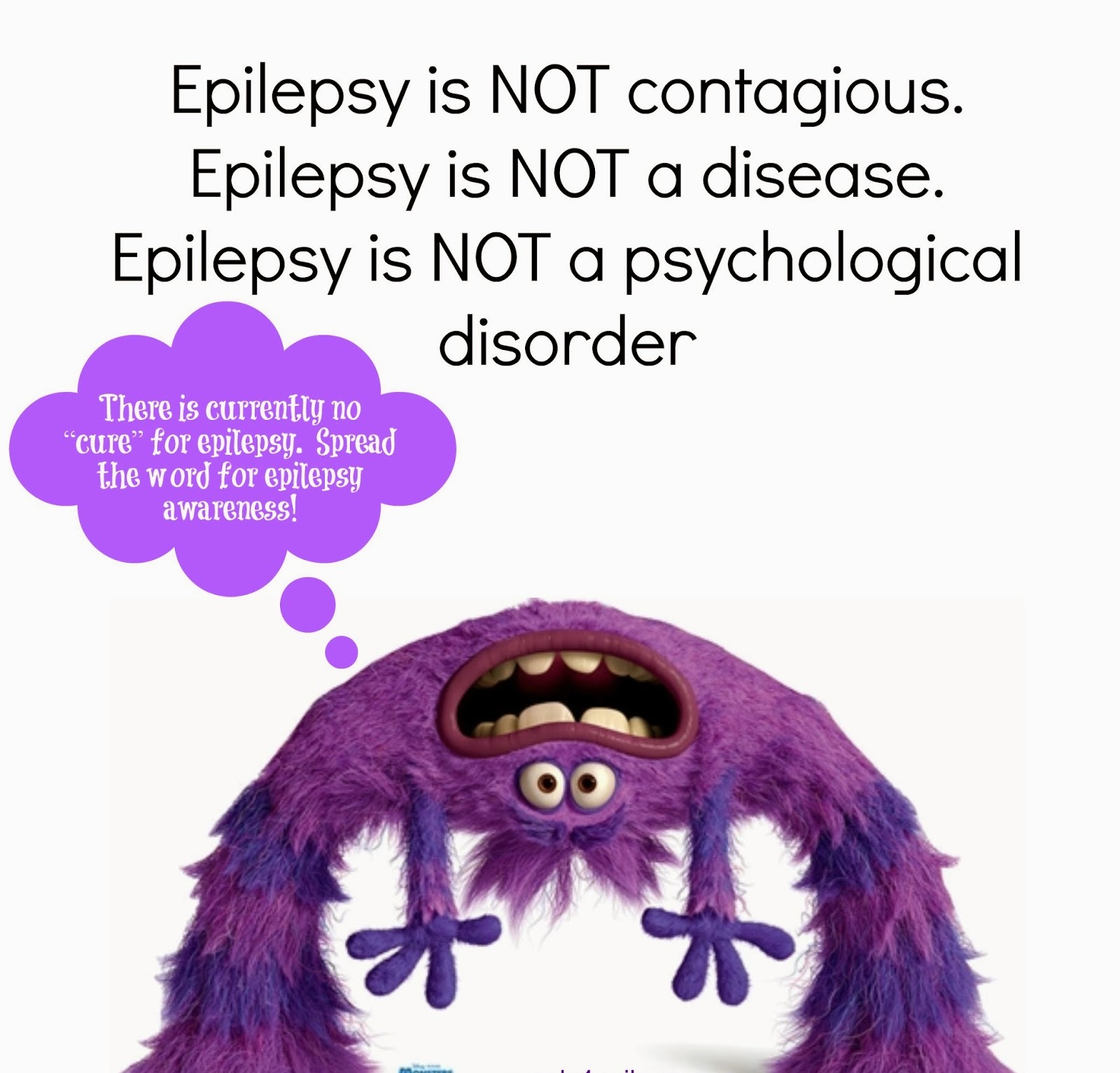Top 10 Misconceptions About Epilepsy

Many people have misconceptions about epilepsy and epileptic seizures. They are intimidated by the thought of seeing someone having a seizure and not knowing how to do the right thing.
Epilepsy is a condition found in the central nervous system. The brain’s electrical signals misfire, disrupting the communication between nerve cells for a short time. Scientists believe that this causes an “electrical storm” that leads to seizures.
The causes of epilepsy may be unknown, or occur because of a brain injury. Scientists say that some severe types of epilepsy are caused by gene mutations. Some young children may outgrow epilepsy, but others may need to be on medication for the rest of their lives. Many people improve with anti-seizure medications and may be able to gradually decrease or cease their dosage under a doctor’s supervision. For some, medication is ineffective in treating seizures.
1. Epilepsy is a childhood disorder that is life long.
Epilepsy happens to people over age 65 almost as often as it does to children aged ten and under. Seizures in the elderly are often the after effect of other health problems like stroke, head injury and heart disease. It is seen in veterans and others after head trauma (wear a helmet!!!). True, about 30% of children with epilepsy do not have their epilepsy controlled, however that means that 70% do not have seizures – and many many of those kids grow out of epilepsy.
2. If you see a person having a convulsion, you should force something in their mouth to prevent them from swallowing their tongue.
When I teach school children about seizures and epilepsy, I have them all stick out their tongues and then have them tug with their fingers on it. I ask, “Is your tongue attached?” They all laugh and say it is. I ask, “who can touch their nose with their tongue?” usually one can. I ask, “who can swallow their tongue?” Funny, no one can swallow their tongue. Then they all look at me really funny. I tell them that if they ask their parents what to do if they see a convulsion, most will either not know or say to put something in the person’s mouth to prevent them from swallowing their tongue. The kids love tricking their parents! I have heard they return to school the next day telling about how their parents DID think you can swallow your tongue during a convulsion. HA! Two-fer-one: kids learned about seizures and they roped their parents into learning also!
So, why not put something into their mouth? Because it is good way to chip teeth, puncture gums, or even break someone’s jaw. The correct first aid is simple. Just gently roll the person on one side and if you have something soft, put it under his head to protect him from getting injured. Tell everyone else to be calm and give him room. Convulsions generally stop on their own, if no ID is found, or the seizure lasts more than five minutes, call 911.
3. All seizures are “grand mal”, or whole body convulsions.
There are many kinds of seizures, contrary to what Hollywood would have you believe. When a seizure causes synchronised brain activity (like a flash mob) in the part of the brain that controls movement, then the seizure will be a convulsion. When a seizure causes brain activity in a part that leads you to smell, you will look fine to everyone else but be smelling something yucky like burning rubber. A seizure without convulsion can look like the person is moving aimlessly or like the person stopped during a fun activity and went blank. Sometimes he or she will just forget what they just did or heard.
4. Treating seizures with medication is dangerous or will cause a person to look dopey or will change their personality.
My goal, as a doctor, is to prevent seizures without causing side effects. If a drug could cause side effects, that does not mean that it will have any side effects in you or your loved one. If someone is started on a medication and has a side effect, they can change to another treatment.
5. Epilepsy is contagious.
As late as the early 1970 persons with epilepsy were locked away in old leper colonies when, in truth, epilepsy is about as contagious as a gun shot wound. Nope, can’t catch it.
6. People with epilepsy can never be alone or swim or drive – epilepsy makes a person dependent on others.
First off, most of us should swim with others: we could get a Charlie horse or leg cramp and need help. Folks who are experienced swimmers and have their seizures under full control can not just swim, but be amazing athletes.
One of the most accomplished, daring, brave, successful people I know is currently competitive ballroom dancer and has traveled across the globe to compete in many triathlons.
Doctors are mandated to report any person they believe is a danger to themselves or others when driving, which is anyone with repeated changes in alertness which may occur when driving. That includes sleep apnea, a condition which is very common and may cause a person to fall asleep at the wheel. Persons who have sleep apnea, have ever had a DUI, and teenage young men are all far more likely to get in an accident than persons with epilepsy. In a number of states, including CA where I practice, there is mandatory reporting of epilepsy… out dated at best. Ok, my venting about just another way Epilepsy is still stigmatized done, folks with controlled epilepsy drive. Folks who get their sleep apnea or sleep deprivation treated can drive. (Ok, on my soap box again: HEY if you do not awaken well rested or need caffeine to function, BE safer and healthier, get more sleep!)
Like any chronic health condition, the person with epilepsy can look and function “typically” by leading a sensible, balanced life. Really, don’t we all need to know our limits?
7. People with seizure disorders should not work in jobs that are important or stressful.
It is argued by a sports writer that he should retire because the stress is bad for him, because the people in the stands do not want to see him have a seizure and because he is not fit for duty. Hmmm – his team was an underdog and is now winning! They love him! He is doing his job.
People with epilepsy are found in all walks of life and at all levels in business, government, the arts and the professions. We aren’t always aware of them because many people, even today, do not talk about having epilepsy for fear of what others might think.
In a line up, you likely could not pick out the folks with epilepsy at one point in their lives.
8. Epilepsy is rare.
One in every 26 American’s will have epilepsy in their life, really. I likely have friends and family who have or had epilepsy. They are not chatty about it, they don’t want you to think they are crazy. Oh yeah, people with epilepsy are not possessed or caught by spirits, will not get crazy or dumb, just saying.
There are more than twice as many people with epilepsy as the number of people with cerebral palsy, muscular dystrophy, multiple sclerosis, and Parkinson’s COMBINED. Epilepsy can occur by itself or may come as an added “bonus” with other conditions affecting the brain, such as strokes, head trauma, CP, Down’s Syndrome, genetic disorders, developmental disabilities and especially AUTISM.
9. With today’s medication, epilepsy is largely solved.
Epilepsy is a chronic medical problem that for many people can be successfully treated. This is similar to migraine; many with migraine use a medication to prevent headaches but some have frequent migraine attacks even with the best new therapies. Unfortunately, treatment doesn’t work for everyone and there’s a critical need for more research and treatments. As I said above, at least 30% of children with epilepsy continue to have seizures despite being on therapy.
10. Epilepsy is the same in everyone.
I know we all hate the “C” word (cancer) but for this answer, please think of epilepsy like cancer. We all know that there are many different types of cancer: breast cancer is not nearly the same as prostate cancer. They act different, affect people differently, can be something that kills you or something you have for years. Pancreatic cancer took Michael Landon, Steve Jobs and Patrick Swayze, quickly despite their ability to get the best care.
Epilepsy comes in many different forms. Some forms are very severe, unlikely to go away with any treatment and are likely to cause death. Other forms are less likely to be a problem in the person’s life at all with proper treatment.





